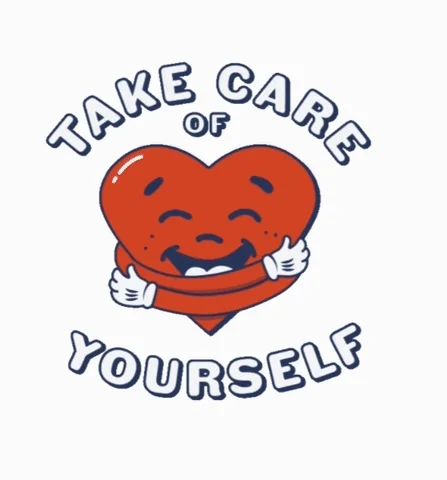
This logo isn't an ad or affiliate link. It's an organization that shares in our mission, and empowered the authors to share their insights in Byte form.
Rumie vets Bytes for compliance with our
Standards.
The organization is responsible for the completeness and reliability of the content.
Learn more
about how Rumie works with partners.
Do you feel:
Overwhelmed with the amount of tasks you have to complete?
Lost with all the chores you have to finish?
Exhausted every morning?
Anxious thinking about all the deadlines you need to meet?

Your situation might not match the questions above, but if you're experiencing similar feelings, you might be under a high mental load.
Learn what high mental load means and how to manage it so you don't have to feel this way anymore!
What is mental load?
 Cognitive labor refers to all the brain power that you're using to keep yourself organized and get things done:
Cognitive labor refers to all the brain power that you're using to keep yourself organized and get things done:
Organizing your schedule
Planning dinner
Preparing for a presentation
 Emotional labor refers to all the feelings that come with cognitive labor:
Emotional labor refers to all the feelings that come with cognitive labor:
Worrying about getting to work on time
Anxiety about meeting the deadline
As you can see, mental load is an inevitable and normal part of our lives. But it becomes problematic when the mental load becomes too intense. This is when you might have high mental load.

What causes high mental load?
There's no one single cause for high mental load, and each situation is different. One common thing for any cause is that it's always very stressful.
You get susceptible to high mental load when you're under a lot of pressure, have a lot of tasks or deadlines, and almost hit your capacity, cognitively and emotionally.
For example:

You decided to take 5 courses for your university degree this semester. All the due dates are coming up at the same time: 2 research papers, 2 mid-term exams, and one quiz.
You also have a part-time job 3 days a week. You don't know how you will make time for everything.

You were recently promoted to a new job. You have three projects to work on, and five people reporting to you. You also have to prepare for the upcoming impact review.
You've been working extra hours to keep up with all the tasks, but you're not sure how much longer you can continue like this.

You have 2 young kids to look after, and one of them started kindergarten two weeks ago. Your family is still getting used to the new routine, but you have everyday chores that can't wait.
Your partner is going on a business trip for a week soon, but you don't know how to manage it all by yourself.
Quiz
You experience high mental load only when you have a tight deadline to meet.
High mental load can be caused by a variety of reasons, and there's no "right" cause. Everyone experiences it differently, and it might or might not involve a tight deadline. Don't let others define your own high mental load!
How might you feel?
Similar to the cause of high mental load, signs of high mental load also look different from person to person. Common signs that you're experiencing high mental load include:
• Feeling like you never have enough time
• Feelings of guilt, of not doing enough
• Extreme fatigue
• Sleep disorders, including insomnia
• Mood disorders, including irritability
This is not a complete list of signs, and you might experience it in your own way. But if any of these sounds familiar to you, it's important that you seek support early.

How can you manage high mental load?

Find someone to share the mental load
Oftentimes, high mental load comes from taking on too many tasks and/or too much pressure. It's helpful to have a support network that can help you both cognitively and emotionally.
Can someone help you complete any tasks?
Can you talk to anyone about the pressure you're under honestly?
Can you get advice from someone about how to meet the deadline more efficiently?

Build your self-care routine
When things get tough, it's important to look after yourself. If you practice self-care regularly, you can build resilience and you'll be stronger when you experience high mental load.
There are many ways you can exercise self-care, but the following Bytes are a great place to start!

Seek professional support
Sometimes, it's just too much for you to handle on your own, and that's okay! It's important to be aware of the professional support options available to you, such as:
Government programs, like the Canadian government's mental health support page
School counselors
Local community mental health centers
Your employer's benefit plan
Quiz time!

Meet Peter. He recently started university. It's his first time living away from home, but he loves the freedom. He's been making new friends and life cannot be better!

...Until recently. He decided to take 5 courses this semester, and the course load is heavier than he anticipated. He has been selected as a starting member of the university soccer club, and the practice is more frequent and intense now. He also started a part-time job recently, and he's taken on extra shifts to help with expenses.

He's been getting very little sleep, and he wakes up feeling tired every morning. He hasn't been eating very well. He feels overwhelmed.
Quiz
What are some strategies Peter can try to help him handle the high mental load? Select all that apply:
It's important that you find solutions to your current situation, instead of ignoring it or giving up. Stopping doing something entirely isn't necessarily the best solution, and it can sometimes feed into a sense of guilt. It's also important for him to stay healthy, so he should avoid energy drinks.
Take Action

Life can be very hectic, but you can manage it better if you know how to handle the high mental load!
This Byte has been authored by
Yumiko Mizuno
Multilingual Team Lead
BA